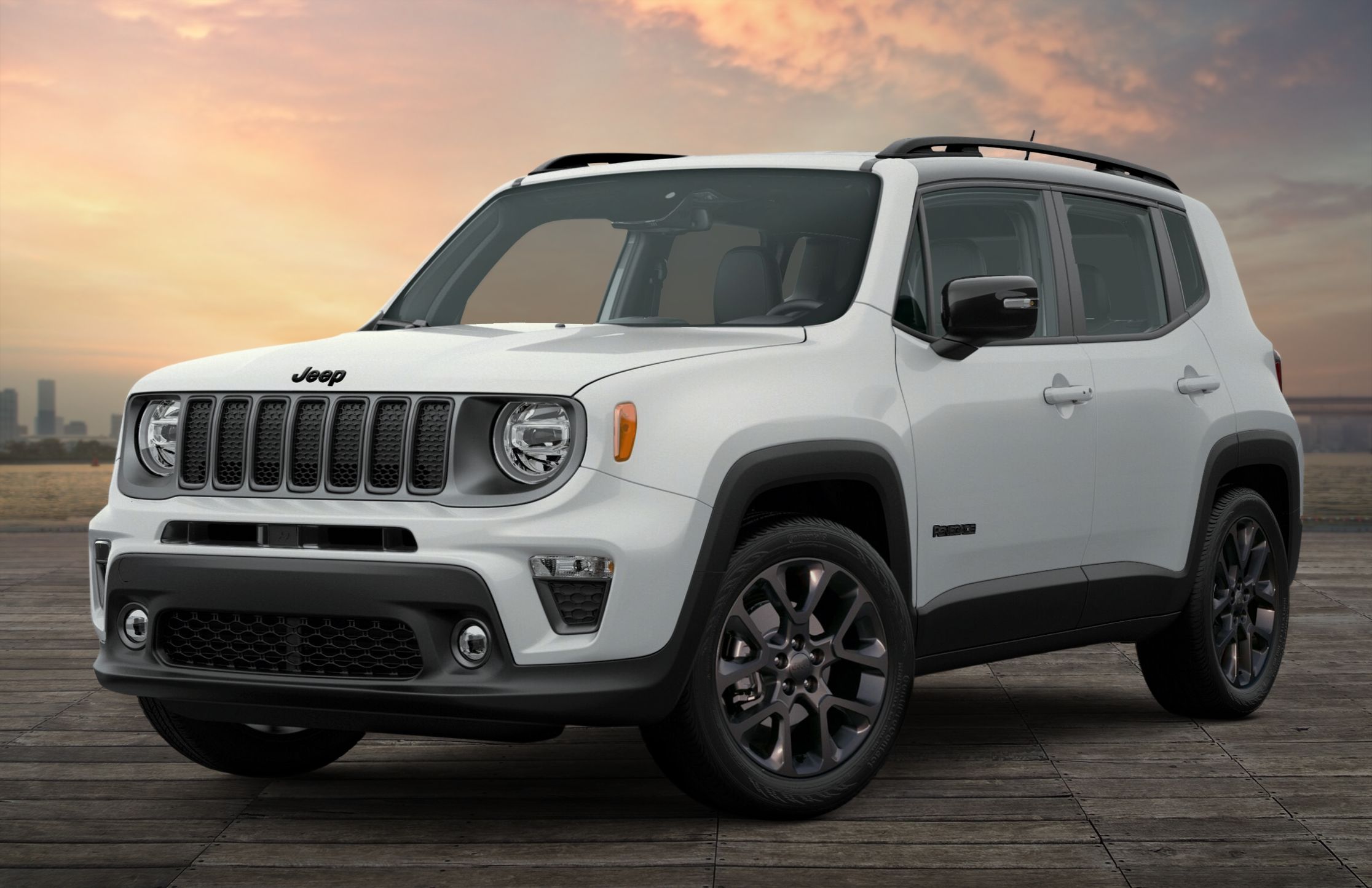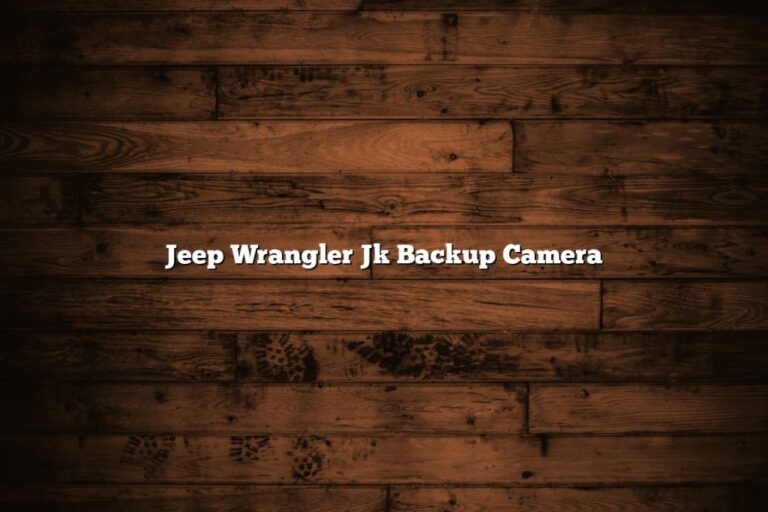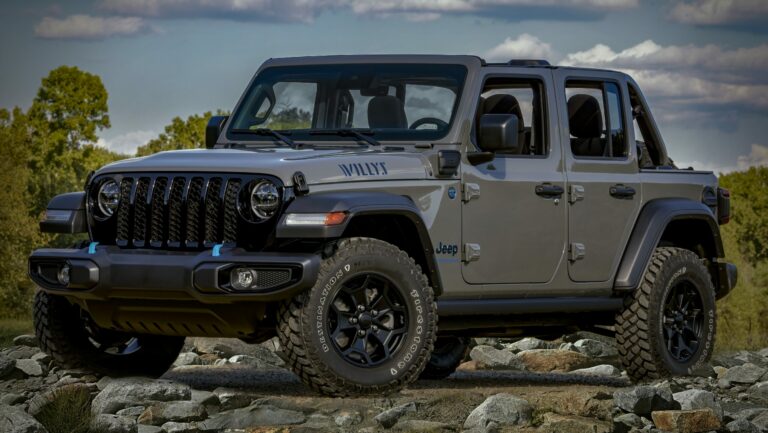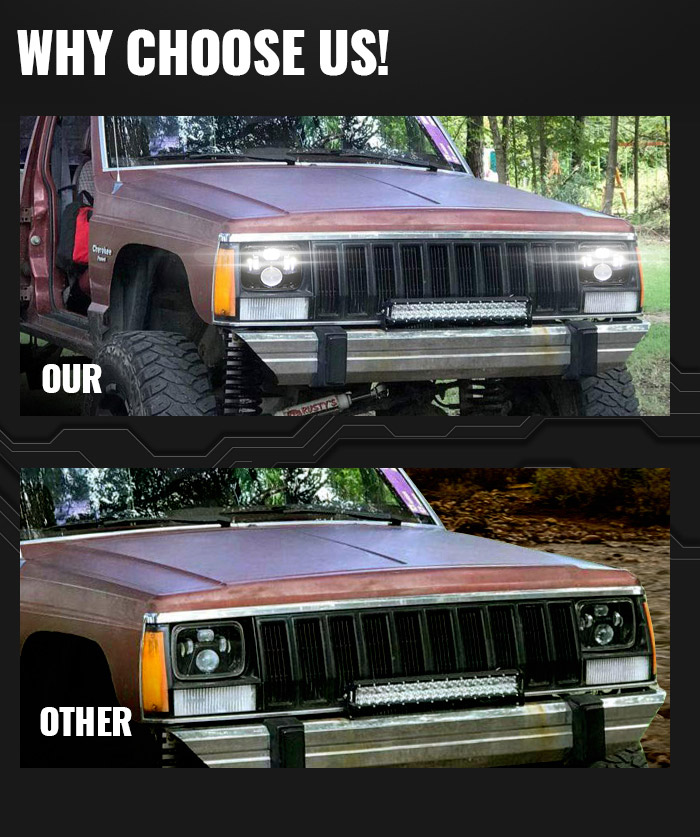Jeep Kit Cars For Sale: Your Gateway to Custom Off-Road Adventures
Jeep Kit Cars For Sale: Your Gateway to Custom Off-Road Adventures jeeps.truckstrend.com
The roar of an engine, the spray of mud, the thrill of conquering untamed terrain – for many, the allure of a Jeep is undeniable. But what if you could experience that rugged capability, tailored precisely to your vision, without the hefty price tag of a brand-new vehicle or the hidden rust of a vintage find? Enter the world of Jeep kit cars for sale. These fascinating projects offer a unique blend of affordability, customization, and the profound satisfaction of building your own off-road beast.
A Jeep kit car isn’t just a purchase; it’s an investment in a journey. It’s about taking raw components and transforming them into a personalized testament to your mechanical skill and passion for adventure. Whether you dream of a faithful replica of a WWII Willys MB, a modernized CJ-style cruiser, or an extreme rock-crawling buggy, the kit car market opens up a realm of possibilities that factory vehicles simply can’t match. This comprehensive guide will explore everything you need to know about finding, evaluating, and ultimately acquiring your dream Jeep kit car.
Jeep Kit Cars For Sale: Your Gateway to Custom Off-Road Adventures
What Exactly is a Jeep Kit Car?
At its core, a Jeep kit car is a vehicle that is assembled by the owner from a collection of parts provided by a manufacturer, often utilizing a "donor" vehicle for its chassis, drivetrain, and other essential components. Unlike buying a fully assembled car, a kit car requires significant hands-on work.
The "kit" itself can vary widely in completeness:
- Basic Body Kit: This might include just the fiberglass or steel body panels, requiring the builder to source or fabricate a frame, suspension, axles, engine, transmission, and interior.
- Rolling Chassis Kit: These kits often come with a pre-fabricated frame, suspension components, and sometimes even axles, ready for the builder to drop in their chosen engine, transmission, and attach body panels.
- Complete Minus Drivetrain Kit: These are the most comprehensive kits, providing nearly everything needed to build a functional vehicle, excluding the engine, transmission, and transfer case, which the builder sources separately.

The most common donor vehicles for Jeep kit cars are older Jeep models (like the CJ, YJ, or TJ series), Ford Broncos, or even domestic pickup trucks, which provide a robust frame, axles, and often a suitable drivetrain that can be adapted or upgraded.
Why Consider a Jeep Kit Car? The Allure of DIY Off-Roading
The decision to embark on a kit car build is driven by several compelling factors:
- Cost Savings: While not always universally true, a well-planned kit car build can often be significantly cheaper than purchasing a comparable new or even fully restored classic Jeep. You save on labor costs by doing the work yourself.
- Unparalleled Customization: This is perhaps the biggest draw. From the engine and transmission choice to suspension geometry, interior finishes, and exterior styling, every aspect can be tailored to your exact specifications and intended use.
- Educational Experience: Building a vehicle from the ground up provides an invaluable education in automotive mechanics, fabrication, and problem-solving. It’s a hands-on learning experience like no other.
- Unique Vehicle: Your kit car will be one-of-a-kind. It won’t be just another mass-produced vehicle but a reflection of your personality and craftsmanship.
- Avoiding Common Issues: You can avoid the hidden rust, worn-out components, and unknown history often associated with purchasing old Jeeps. You start with known quantities or new parts.
- Performance Potential: By choosing specific engines, axles, and suspension setups, you can build a vehicle optimized for extreme rock crawling, high-speed desert running, or comfortable street cruising.
- Satisfaction of Creation: There’s immense pride and satisfaction in driving a vehicle you’ve personally assembled and customized.
Types of Jeep Kit Cars Available
The market for Jeep kit cars is diverse, catering to various tastes and budgets:
- Classic Replicas: These kits aim to faithfully reproduce iconic Jeep models, most notably the WWII Willys MB or Ford GPW, and later civilian models like the CJ series (CJ-2A, CJ-3B, CJ-5, CJ-7). These often prioritize period-correct aesthetics.
- Modernized/Custom Designs: Moving beyond direct replicas, many kits offer updated styling or entirely new designs. These can range from slightly tweaked CJ-style bodies to radical tube-frame buggies designed purely for extreme off-road performance, often with modern powertrain options.
- Body Swap Kits: These kits typically involve replacing the body of an existing donor vehicle (e.g., a rusty YJ) with a new fiberglass or steel body that resembles a classic Jeep, while retaining the donor’s frame and drivetrain.
- Chassis Kits: These provide a new, often stronger or specialized, frame and suspension, allowing the builder to create a custom vehicle from the ground up, perhaps using a classic Jeep body or a custom fabricated one.
Finding Jeep Kit Cars For Sale: Where to Look
The hunt for a kit car requires diligence and knowing where to search:
- Specialized Kit Car Manufacturers: Many companies (e.g., Willys-Overland Motors, Shell Valley Classic Wheels, Beach Buggy Kits, various custom fabrication shops) sell new kits directly. Their websites are the primary source.
- Online Marketplaces:
- eBay Motors: Often has new and used kits, partially built projects, and completed kit cars for sale.
- Craigslist/Facebook Marketplace: Excellent for local finds, including uncompleted projects, donor vehicles, and parts. Use specific search terms like "Jeep kit car," "Willys replica," "CJ kit," "buggy chassis."
- Facebook Groups: Numerous groups dedicated to kit cars, specific Jeep models, off-roading, and fabrication are great places to find sellers and connect with the community.
- Automotive Forums: Websites like Pirate4x4.com, JK-Forum.com, or specific forums for classic Jeeps often have classified sections where members sell kits or completed projects.
- Classic Car & Off-Road Classifieds: Publications and websites dedicated to classic vehicles or off-roading may list kit cars.
- Auctions: Sometimes, kit cars or unbuilt kits appear at automotive auctions, but these require quick decision-making and thorough pre-inspection.
Key Considerations Before Buying a Jeep Kit Car
Before you open your wallet, a thorough understanding of the commitment involved is crucial:
- Legalities & Registration: This is paramount. State laws regarding vehicle registration, titling, and VIN assignment for "assembled vehicles" or "special construction" cars vary wildly. Research your local Department of Motor Vehicles (DMV) requirements before you buy. Some states are very friendly, others are notoriously difficult. You’ll need documentation for all major components.
- Donor Vehicle Requirements: Understand precisely what kind of donor vehicle (make, model, year range) the kit is designed for. Assess the condition of any potential donor vehicle – a cheap donor might have hidden issues that negate your savings.
- Your Skill Level & Tools: Be brutally honest about your mechanical aptitude. Do you have experience with welding, fabrication, wiring, engine installation, suspension work, and painting? Do you own or have access to the necessary tools (welder, grinder, hoist, specialized automotive tools)? If not, factor in the cost of professional help or tool acquisition.
- Budget Beyond the Kit: The kit price is just the beginning. You’ll need to budget for:
- Engine, transmission, transfer case, axles (if not included)
- Driveshafts, exhaust system
- Suspension components (shocks, springs, control arms, if not included)
- Steering system, brakes (lines, calipers, master cylinder)
- Wheels and tires
- Fuel system (tank, pump, lines)
- Electrical system (wiring harness, lights, gauges, battery)
- Interior (seats, seatbelts, dashboard, trim)
- Paint and bodywork supplies
- Miscellaneous hardware, fasteners, fluids
- Unexpected costs (always add a 15-20% buffer!)
- Intended Use: Will it be a street-legal daily driver, a dedicated off-road rig, a show vehicle, or a combination? This will dictate component choices and budget.
- Resale Value: Generally, kit cars do not hold their value as well as factory-built vehicles, unless they are exceptionally well-built replicas or highly sought-after custom projects. Be prepared that your investment might be primarily in the experience, not future profit.
- Completeness of the Kit: Get a detailed inventory of what’s included and, more importantly, what’s not. Don’t assume anything.
The Buying Process: Tips for a Smooth Transaction
- Research the Seller/Manufacturer: If buying a new kit, research the manufacturer’s reputation, customer support, and build quality. If buying a used kit or a partially completed project, ask for detailed photos, component lists, and the reason for selling.
- Inspect Thoroughly: If possible, inspect any used kit or completed project in person. Look for damage, missing parts, or poor workmanship. If buying a new kit, understand the shipping process and inspect upon arrival.
- Ask Detailed Questions: Don’t be shy. Inquire about the build process, required donor parts, potential challenges, and support offered.
- Understand Shipping/Delivery: Kit components can be large and heavy. Factor in shipping costs and logistics.
- Get Everything in Writing: A clear bill of sale, component list, and any agreed-upon terms are essential.
Potential Challenges and Solutions
- Unexpected Costs: Solution: Always over-budget. Source used but reliable parts where possible, but don’t compromise on critical safety components.
- Technical Difficulties: Solution: Join online forums, watch build videos, invest in service manuals, and don’t be afraid to ask for help from experienced builders or professionals.
- Registration Issues: Solution: Consult your local DMV early in the process. Keep meticulous records and receipts for all components. Be prepared for inspections.
- Time Commitment: Solution: Be realistic about the time required. Break the project into smaller, manageable tasks. Don’t rush; quality takes time.
- Finding Specific Parts: Solution: Leverage online communities, specialty shops, junkyards, and fabrication skills.
Pricing Guide for Jeep Kit Cars
It’s crucial to understand that prices for Jeep kit cars vary immensely based on the type of kit, the manufacturer, the completeness of the kit, the materials used (fiberglass vs. steel), and whether you’re buying a new kit or a used/partially completed project. The following table provides estimated ranges and considerations.
| Kit Type / Project Stage | Typical Price Range (USD) | What’s Included (General) | Key Considerations |
|---|---|---|---|
| Basic Body Kit | $2,000 – $8,000 | Fiberglass or steel body tub, fenders, hood, grille. | Requires significant fabrication (frame, mounts), sourcing all mechanicals, interior, wiring. High skill level needed. Total cost will be much higher. |
| Rolling Chassis Kit | $8,000 – $20,000+ | New frame, suspension (shocks, springs), sometimes axles | Ready for body, engine, transmission, transfer case, driveshafts, wiring, interior. Less fabrication but still extensive mechanical work. Often higher quality components. |
| Complete Minus Drivetrain Kit | $15,000 – $35,000+ | Body, frame, suspension, axles, steering, brakes, fuel system, some interior components, wiring harness. | Requires sourcing and installing engine, transmission, transfer case. Most comprehensive new kit option. Reduces complexity significantly but still a major undertaking. |
| Partially Completed Project | $5,000 – $25,000+ | Varies widely. Could be a body on a frame, some parts installed, or stalled build. | Highest risk/reward. Requires careful inspection to assess quality of work done, completeness of parts, and reason for abandonment. Could be a bargain or a nightmare. Requires significant problem-solving. |
| Finished Kit Car (Used) | $10,000 – $40,000+ | Fully assembled, road-ready (or near-ready) vehicle. | Price depends heavily on build quality, components used (engine, axles, suspension), mileage, and legal registration status. Can be a good option for those who want the unique vehicle without the build process. Inspect thoroughly! |
| Donor Vehicle (Used) | $500 – $5,000 | Older Jeep YJ/TJ, Ford Bronco, pickup frame/drivetrain. | Essential for most kits. Cost depends on condition, completeness, and model. Factor in potential repair/rebuild costs for donor components. |
Note: These are general estimates. High-end custom kits or meticulously built finished projects can easily exceed these ranges.
Frequently Asked Questions (FAQ)
Q1: Are Jeep kit cars street legal?
A1: This is the most crucial question, and the answer varies by state/country. Many states allow "assembled vehicles" or "special construction" titles, but require inspections, adherence to safety standards, and proper documentation of all major components (engine, frame, body). Always research your local DMV regulations before starting a build.
Q2: How much does it cost to build a Jeep kit car?
A2: Excluding the kit price, expect to spend anywhere from an additional $5,000 to $30,000+ on parts like the engine, transmission, axles, suspension, wheels, tires, wiring, interior, and paint. The total cost is highly dependent on your chosen components, whether you buy new or used, and how much work you do yourself versus hiring professionals.
Q3: Do I need special tools to build a kit car?
A3: For basic assembly, standard mechanic’s tools are sufficient. However, for most kits, you will likely need or benefit from a welder, angle grinder, floor jack, jack stands, engine hoist, air compressor, and various power tools. Fabrication skills and equipment are often necessary.
Q4: How long does it take to build a Jeep kit car?
A4: This varies enormously based on your skill level, the kit’s complexity, your available time, and your budget. A relatively simple body swap might take a few months of dedicated weekend work, while a full ground-up build of a complex kit could take 1-3 years or more.
Q5: Can I use any donor vehicle for a Jeep kit car?
A5: No. Most kits are designed to fit specific donor frames and drivetrains (e.g., Jeep YJ, TJ, or specific Ford/Chevy truck chassis). Modifying a kit to fit an incompatible donor will require significant and often complex fabrication.
Q6: What’s the difference between a kit car and a custom build?
A6: A kit car starts with pre-manufactured components (the "kit") that are designed to fit together, simplifying the build process. A "custom build" often involves starting from scratch (e.g., building a custom frame, fabricating all body panels) or heavily modifying an existing vehicle, requiring more advanced fabrication and engineering skills.
Conclusion: Your Adventure Awaits
The world of Jeep kit cars for sale is a thrilling frontier for the mechanically inclined and the adventure-seeker. It represents a unique opportunity to own a personalized, capable off-road vehicle that embodies your vision and effort. While the journey involves significant commitment in terms of time, money, and skill, the rewards – a truly custom machine and the immense satisfaction of building it yourself – are immeasurable.
By carefully researching your options, understanding the full scope of the project, and embracing the challenges, you can navigate the market for Jeep kit cars and ultimately drive away in the custom off-road vehicle of your dreams. Your next great adventure isn’t just on the trail; it begins in your garage.





